When Opportunity Knocks
Shannon MacMillan Helped Lead the USWNT to Gold at the 1996 Summer Olympics in Athens, Ga. Years Later She Remains Driven to Make an Impact On the Game.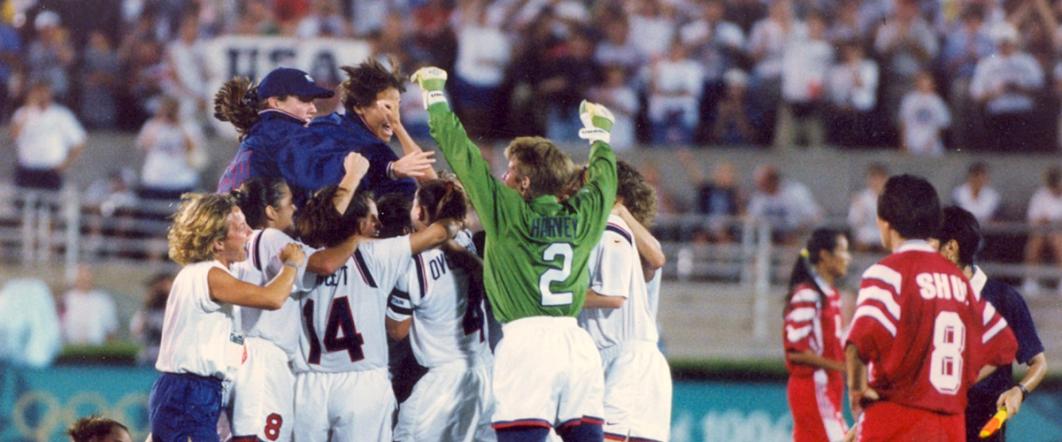
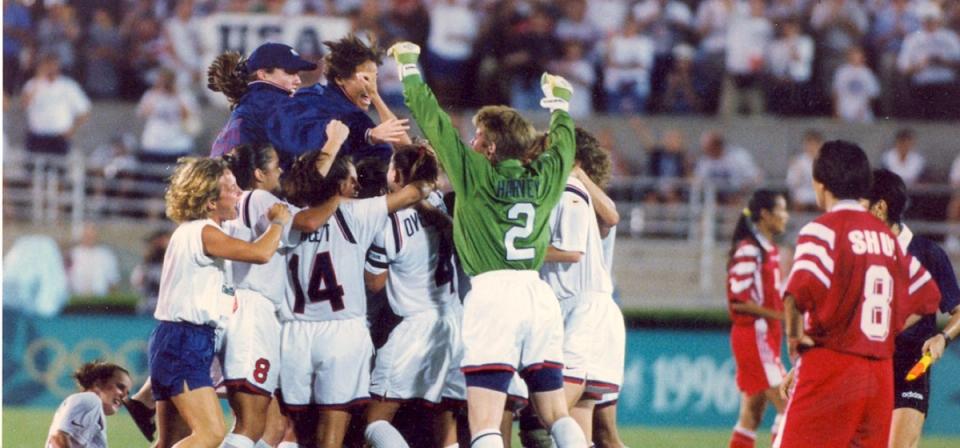


During an amazing 141-minute span over two games in the summer of 1996, it seemed that just about everything Shannon MacMillan touched turned to goal.
In the first Olympic women's soccer tournament, MacMillan not only emerged as the top goal-scorer for the USA, she tallied two of the most memorable goals in the team’s illustrious history.
While the matches were not shown live on TV during those Olympics, the lack of coverage and the years gone by have not made them any less special.
MacMillan connected on the “golden goal” in a dramatic 2-1 semifinal triumph against Norway, before helping earn that precious gold medal by scoring the first goal in the championship match, a 2-1 win vs. China PR.
When told about her sparking 141 minutes, MacMillan replied with a chuckle, "I actually didn't know that. I like that stat."
So did assistant coach Lauren Gregg, who spoke about MacMillan’s worth prior to the Atlanta Summer Games.
"Shannon is one of the best players I've ever coached," Gregg said. "What always stood out to me was just this incredible keen sense for the goal. There aren't a lot of players that have this desire and this one-way mindset of going to goal. Mia Hamm had that unique ability. Carin Gabarra Jennings, April Heinrichs; I put Shannon MacMillan in that category. Her technical speed was exceptional. But you can have technical speed without this drive to go to goal or the confidence to be a risk-taker because you fail constantly. And it's the hardest thing that any front runner has to deal with. They have to be able to fail 10, 11, 12 times and risk one more time to make the difference.”
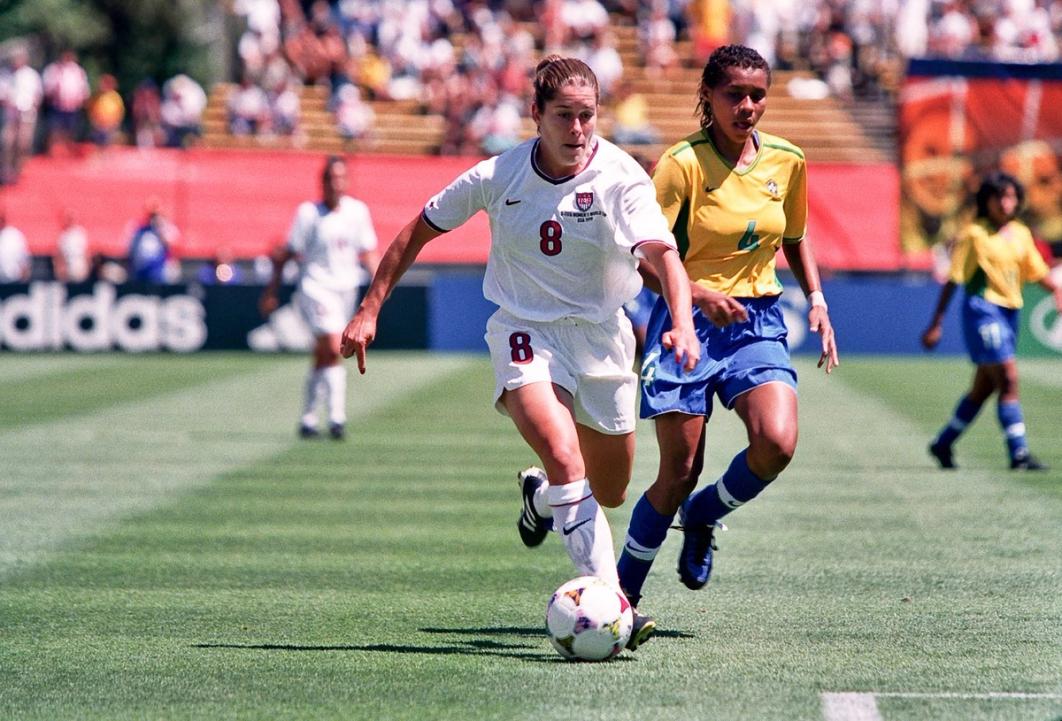
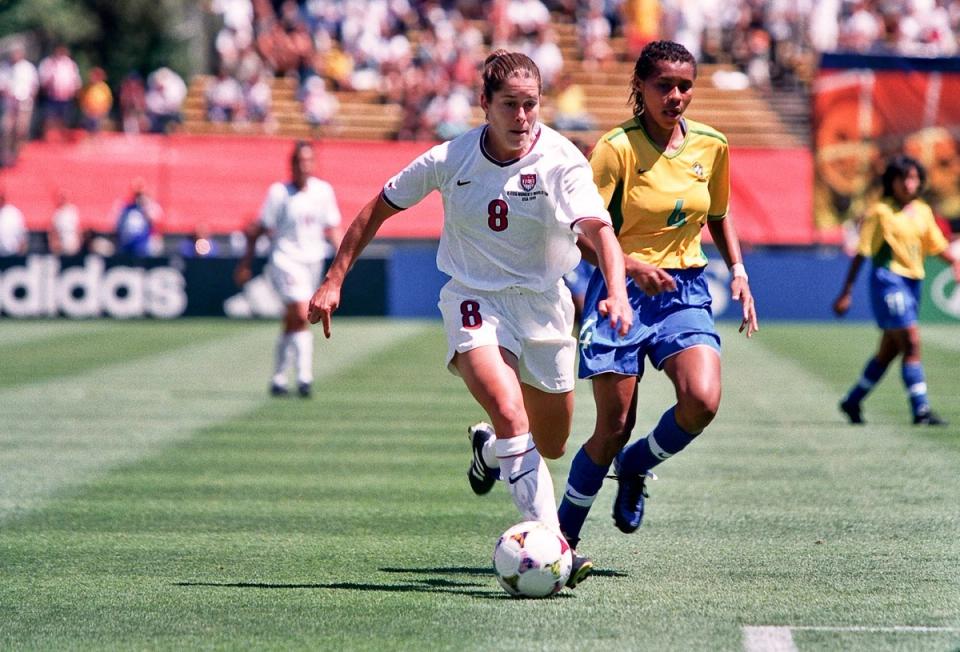
While MacMillan's accomplishments are now USWNT lore, she pushes credit elsewhere.
"It is pretty cool, and it is something that I am incredibly proud of, especially for me to make that roster, let alone be a starter and the leading scorer for the U.S.," she said. "We were not just a good group, but a good group of people. We were playing for the love the game. We weren't getting rich by any means. We were representing our country, playing for that badge on your chest, playing for the [teammate] that’s next to you."
MacMillan's résumé includes her 2016 induction into the National Soccer Hall of Fame, a distinction she earned after amassing 60 goals and 53 assists in 176 international appearances. She also was a member of the 1999 Women's World Cup championship team, won a silver medal at the 2000 Olympics and was on the 2003 Women’s World Cup roster. The San Diego native also was the 2002 U.S. Soccer Female Player of the Year, leading the team with 17 goals. But those numbers only tell part of her story of determination.
"Being able to do what I was able to do, I just feel incredibly blessed," MacMillan said. "It's something that I am very proud of, but I couldn’t have done it without the support of my teammates and being in the right position on that team. Those stats and those honors are really cool, but what remains important to me is that I am still touch with a lot of these incredible women."
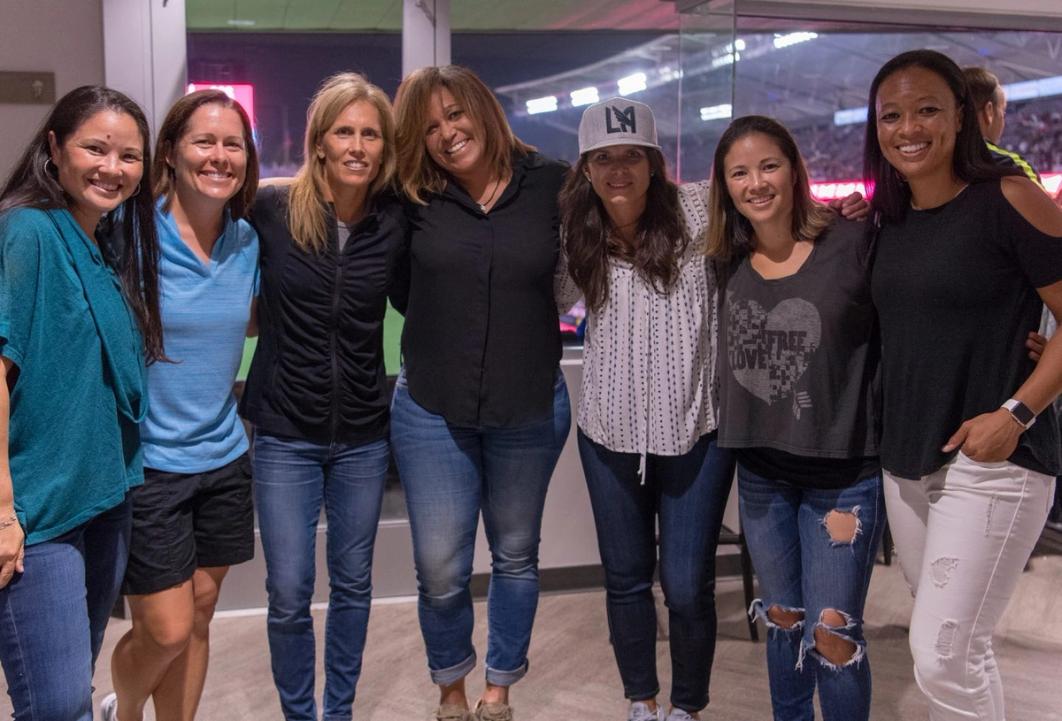
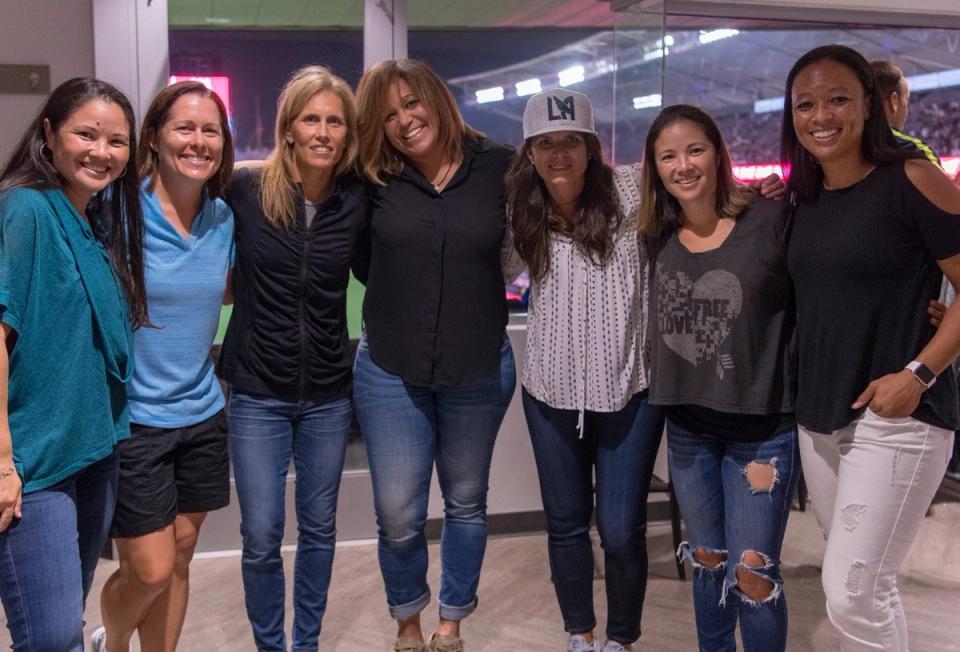
Just earning a spot on team was an Olympian feat. In 1996, Olympic rosters featured just 16 players – and only 14 field players -- and given the talent on a team that captured the first Women’s World Cup in 1991, accompanied by a Third-Place finish at the 1995 Women’s World Cup, it was difficult group to break into for any newcomer.
MacMillan's first USWNT camp was in 1993 and her first appearance came a year later, but she was not named to Olympic residency camp to prepare for the Atlanta Games.
"I was completely devastated," said MacMillan, who returned to the University of Portland, where was a four-time All-American and winner of the Missouri Athletic Club Award and Hermann Trophy playing for legendary coach Clive Charles.
She sat down to talk with Charles, who had a massive influence on the then 21-year-old’s career. Besides a distinguished career coaching the Portland men and women, Charles guided the U.S. Men’s National Team to a stunning fourth-place finish, their best, at the 2000 Sydney Olympics.
"I was bawling my eyes out, I was devastated," MacMillan said. "He let me have a little bit of a pity party in his office. He gave me 24 hours to mope and feel sorry about myself. Then he said, 'I'll see you on the field tomorrow and I'm going to kick your butt.' He knew I needed that as a human to process everything I was going through. He said, 'Look you're going to have an opportunity. The difference is whether you're going to be ready for that opportunity or you're still going to be feeling sorry for yourself.' That still resonates with me in everything, beyond soccer."
Because many players didn’t initially attend camp due to a labor dispute, MacMillan was offered an opportunity and received the blessing of captain Julie Foudy.
“I was very grateful that Julie and everyone else realized it was an opportunity for me and encouraged me to take it," said MacMillan, who then started playing more in the midfield.
"If I hadn't been cut a couple of months prior, I might not have been as willing or able to have the mindset to say yes, I will do whatever it takes to make this team. I wasn't about drama or anything. I wanted to be a part of that team. I wanted to do whatever it took; accept whatever role it was. I really prided myself on any frustrations or feelings that I was dealing with, I never let it become a team issue. I always kept it internal and handled it on my own. I had so much respect for that group and what it stood for."
Besides, MacMillan knew her teammates always had her back.
"It definitely helped me coming from a forward to a midfield to have the likes of Joy Fawcett behind me," she said. "Probably the best right defender ever behind me to clean up my mess. To have Kristine Lilly as a left midfielder - who better to learn from? Carla Overbeck in the middle. I was definitely in a situation to set up and succeed if I was willing to do the work and embrace it."
MacMillan did - spectacularly
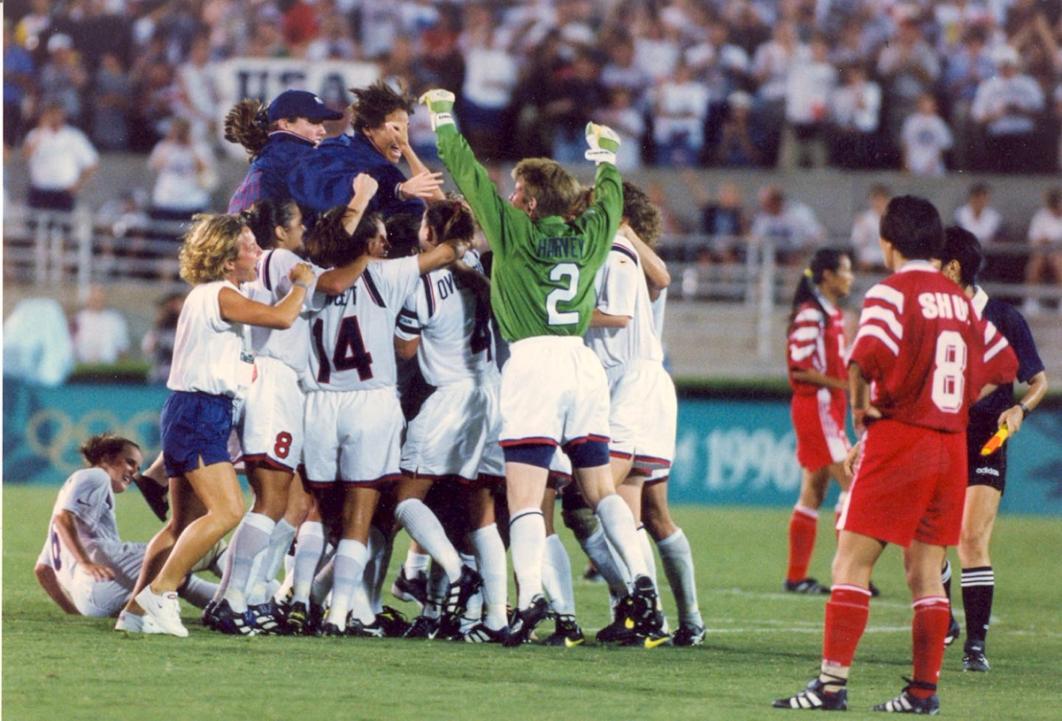
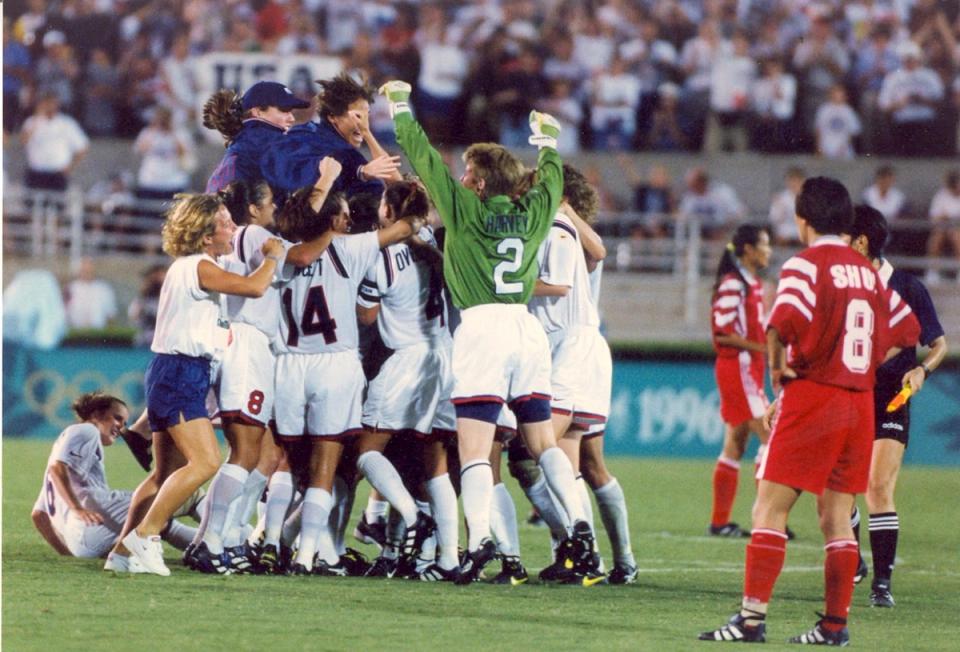
She didn't score in the 3-0 win over Denmark on July 21 in the Olympic opener, but she found the net in a 2-1 win over Sweden on July 23, adding an insurance goal in the 62nd minute.
After the USA's scoreless draw against China PR on July 25 to finish group play, McMillan began the July 28 semifinal confrontation with archrival Norway in Athens, Ga. on the bench. The match was rife with emotion, as not only was Norway the USA’s greatest rival at that time and the reigning World Cup champion, but the Scandinavians had knocked the USA out of the World Cup a year earlier in Sweden in the semifinal.
MacMillan understood the moment, noting that Norway boasted the great Hege Riise, the 1995 World Cup Golden Ball winner.
"We knew she was going to be trouble for us, so we switched our formation to try to close her down and to minimize [her] impact," she said.
During the game, coach Tony DiCicco knew he wanted to take advantage of MacMillan's attacking abilities, but when?
"Tony told me a handful of times to warm up, sit down, warm up, sit down," she said. "Just go into that whole yoyo effect of like, my God. I want to get in, I'm going in! On no, sit down."
With the game knotted up at 1-1 six minutes into extra time, MacMillan replaced Tiffeny Milbrett. "The first touch bounced off my shin. It wasn't the prettiest of touches."
But that next touch, four minutes later, was golden, and turned out to be the game-winner. Overbeck started the sequence from the back to Foudy, who made a run down the right side. This Olympics fell during the era of “golden goal” overtime rule that ran from 1998-2004, and it would give MacMillan the opportunity for a rare “walk-off” moment.
"I just took off on a diagonal sprint and Julie played the most perfect ball through the defense,” MacMillan said. “If I had to touch it, the defenders might have swallowed me up. If I had to wait for it, I could have been offside. I happened to take a peek and I saw the ‘keeper had come out. I just took the first touch, and rolled it right by her to the far post. I knew immediately it was going in. The next thing I know I'm jumping in the air. I felt like I jumped 15 feet in the air with Kristine Lilly and then I was under the pile of the entire team.”
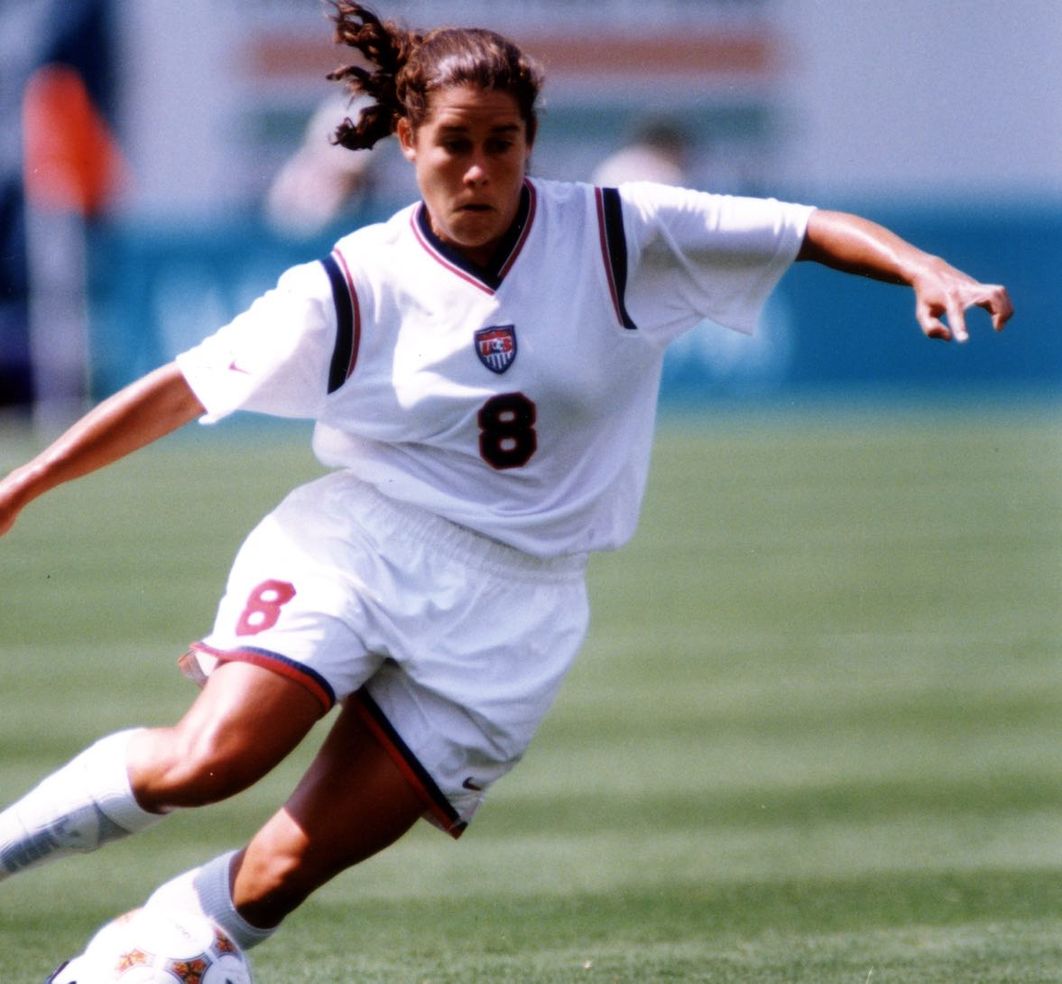
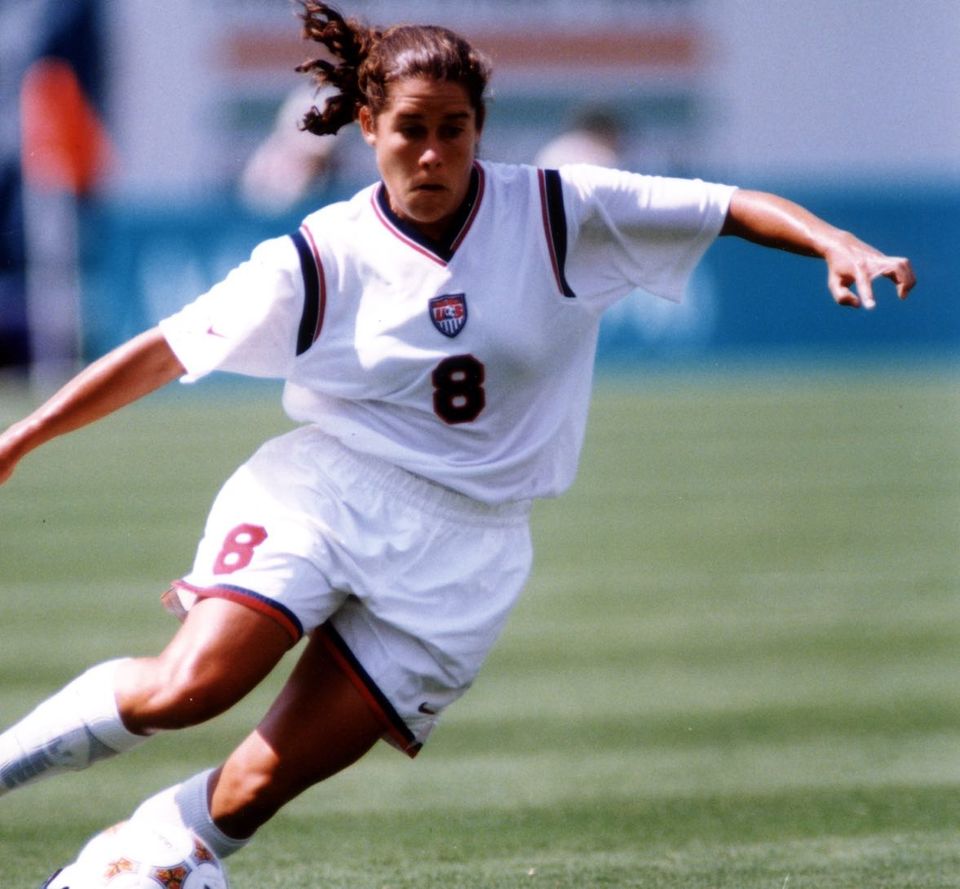
MacMillan not only had the last word against Norway but the first word vs. China PR in the 19th minute of the goldmedal match on Aug. 1 at Sanford Stadium in front of 76,481 spectators, the largest crowd to watch a women's sporting event at the time.
"That's a goal about teamwork," MacMillan said. "Kristine Lilly's got the ball and she's flying down the left side. I still remember it vividly. When Lil was charging the sideline, you were doing anything and everything you could to get in that box because you knew nine times out of then she was going to get some kind of service in. I saw her get free on the left and sprint in the box. She hits this beautiful cross. Mia comes flying in. I don't know how she got a clean a touch on that ball. It seemed like she was airborne. I watched it come off the goalkeeper and the post and all of sudden, it was like the Norway game. You talk about being the zone. The ball set up perfectly, for a one-time touch with my left foot.”
Mac celebrated with a well-executed belly slide.
China equalized with a score from superstar Sun Wen score in the 32nd minute, but Milbrett struck for the historic game-winner in the 68th minute off an assist from Fawcett for a 2-1 triumph.
"We're standing behind the podium and we're all holding hands and we're kind of like, what do we do?" MacMillan said. "They say gold medal, USA. Some of us step up. We stepped down. It was like a comedy of errors almost. This is something that I dreamt of when I was probably seven or eight. Now I'm holding hands with some of the most incredible women in my life about to step onto this podium. It was a moment of us just like 'Wow, we did it' with some colorful words. We finally all got up on the podium and then came probably the worst rendition ever of the national anthem. But it felt like the best."
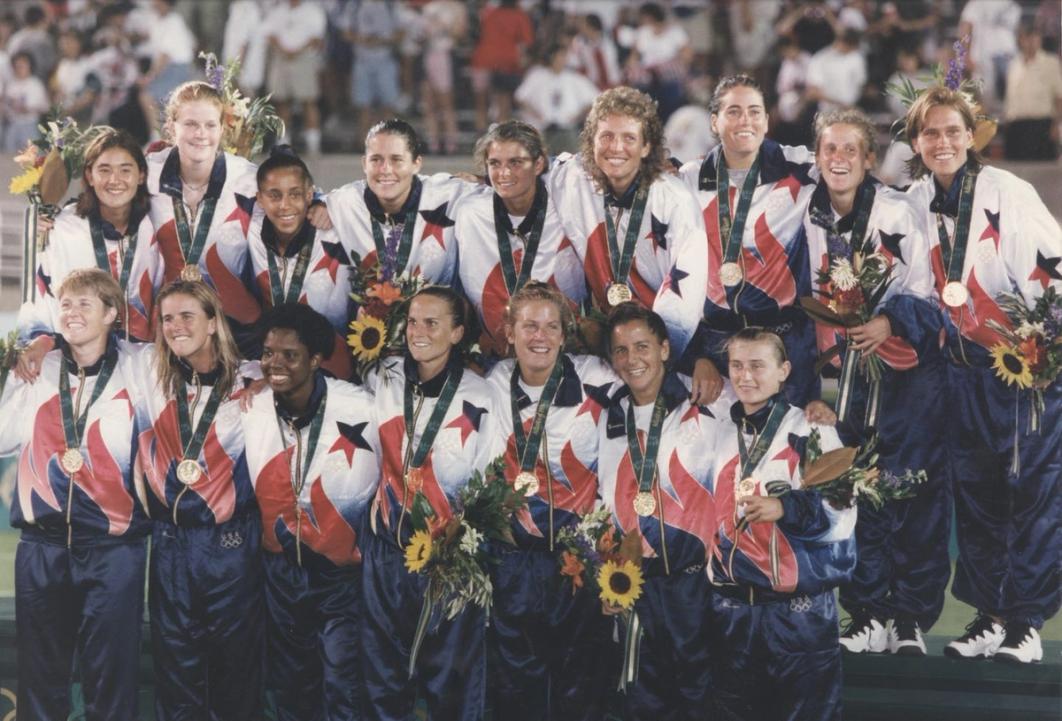
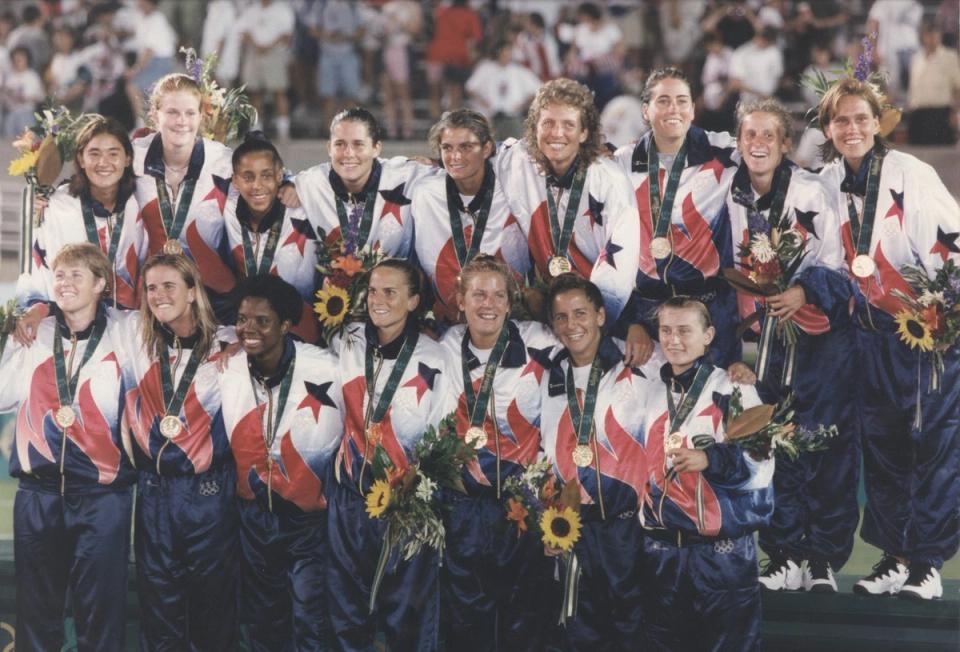
After retiring at age 31 after a career that included three seasons for her hometown San Diego Spirit in the WUSA, as well as a miraculous recovery from ACL surgery to make the 2003 Women’s World Cup Team, she became an assistant coach under future USWNT coach Jill Ellis at UCLA before the Del Mar Carmel Valley Sharks, a San Diego youth club, came calling. MacMillan, starting her 12th year with the Sharks, is executive director.
"It didn't take me too long to think that I have to get back to this game because it paid for my education, it really helped shape me who I am as a person, as a mom," she said. "I feel so fortunate to have someone like Clive in my life. It was really important for me to get back to the game because if I can have half the amount of impact that Clive had on me on any of these kids, then I'll know I've done a really good thing."
Charles passed away in 2003, on the same day that MacMillan made the 2003 WWC Team, and she is continuing to pass on the lessons she learned.
MacMillan, 45, is also making an impact on the professional game with the San Diego Loyal of the USL Championship. U.S. and MLS legend Landon Donovan, the executive vice president and manager, asked her to be an assistant coach, but MacMillan didn't think the timing was right. So, she became a senior advisor and consultant.
Due to the COVID-19 pandemic. San Diego has played only two matches.
The Loyal's home opener "was amazing and electric and kind of started to reignite those juices of being in those environments," MacMillan said. "It was so much fun for me, getting to know the players to work alongside Landon and [assistant coach] Nate Miller. Landon’s got such a soccer brain. It's helping me grow and learn as a coach. I'm looking forward, not only for the men's side to grow and have San Diego embrace them, but also potentially more opportunities for women, too.”
After all, Shannon MacMillan knows that when opportunities knock, you push open that door, and behind it may be goals that etch your place in history.



